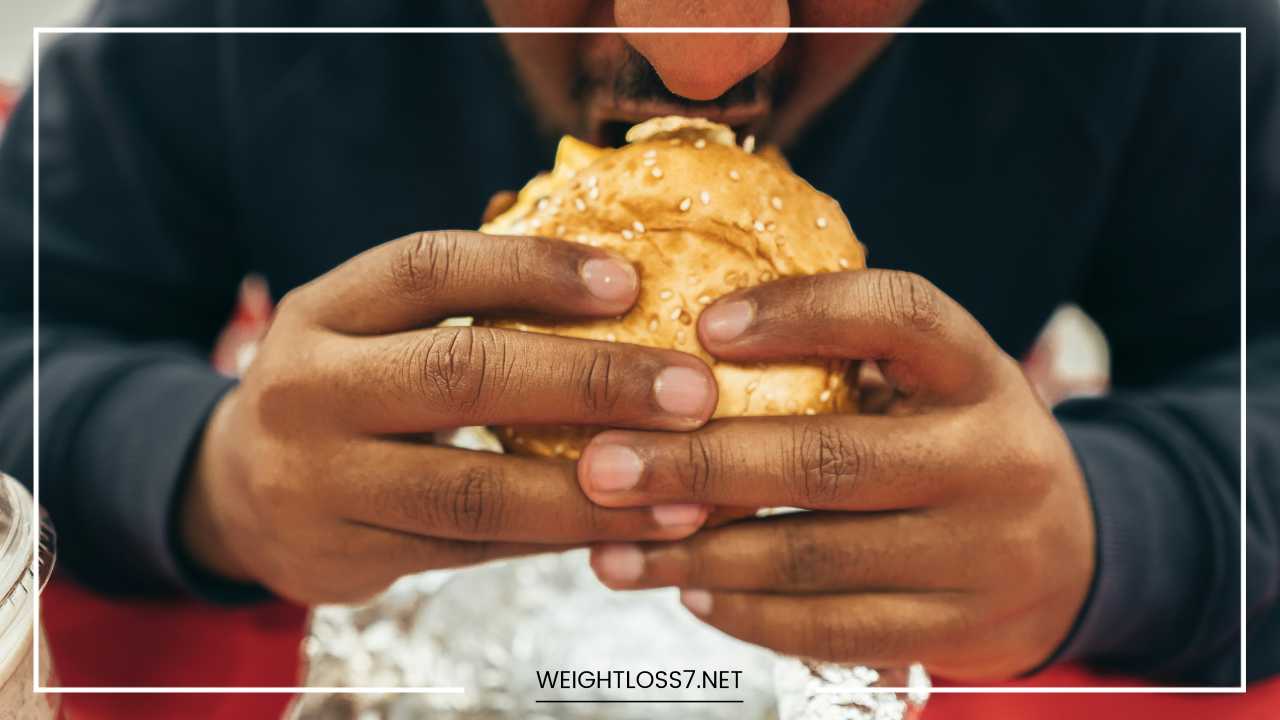Binge Eating Disorder Treatment

Binge Eating
Binge Eating Disorder Treatment: Reclaiming Control and Cultivating Food Freedom
Binge eating disorder (BED) can feel like a relentless cycle of shame, guilt, and uncontrolled eating. It can rob you of the joy of food and leave you feeling out of control.
But there is hope. Effective treatment options are available to help you manage your symptoms and develop a healthy, balanced relationship with food.
This comprehensive guide delves into the different aspects of BED treatment, empowering you to take charge and embark on a path towards food freedom.
Understanding the Layers of BED Treatment
BED treatment goes beyond simply stopping binge episodes. It’s a multifaceted approach that addresses the underlying causes of the disorder, the behavioral patterns associated with it, and the emotional distress it can cause. A typical treatment plan may involve a combination of the following:
-
Psychotherapy: This is the cornerstone of BED treatment, with different approaches offering unique benefits:
- Cognitive Behavioral Therapy (CBT): CBT equips you with tools to identify and challenge negative thoughts and beliefs that contribute to binge eating. You’ll learn coping skills to manage stress and emotional triggers, ultimately developing healthier eating patterns. For example, CBT can help you identify distorted thoughts about body image that might fuel binge urges. You’ll then learn to challenge those thoughts with more realistic and empowering self-talk.
- Interpersonal Therapy (IPT): IPT focuses on improving your interpersonal relationships, which can be a significant factor in BED development. By addressing current life stressors and communication issues, IPT can help reduce emotional eating. For instance, IPT can help you improve communication with your partner about food and emotional needs, leading to a more supportive environment.
- Dialectical Behavior Therapy (DBT): DBT teaches valuable skills for emotional regulation, distress tolerance, and mindfulness. Learning to manage difficult emotions effectively can reduce the urge to use food as a coping mechanism. DBT skills like mindfulness can help you identify emotional cues that precede binge urges, allowing you to intervene with healthier coping strategies.
- Integrative Cognitive Affective Therapy (ICAT): ICAT combines elements of CBT with an emphasis on emotional processing. It delves deeper into the underlying emotions that may trigger binge eating episodes. For example, ICAT can help you explore feelings of loneliness that might contribute to binge urges, and develop healthier ways to address those feelings.
-
Medication: While not a first-line treatment, medications can be helpful for some individuals. Antidepressants, anti-seizure medications like topiramate, and stimulant medications like lisdexamfetamine have shown promise in reducing binge eating frequency. It’s crucial to discuss medication options with a healthcare professional to determine if they’re right for you. Medication can work alongside therapy to address underlying conditions like depression or anxiety that might be contributing to BED.
-
Nutritional Counseling: A registered dietitian can be a powerful ally in developing a balanced and sustainable eating plan. They can guide you on portion control, healthy food choices, and creating a meal plan that fits your individual needs and preferences. Nutritional counseling can also help you manage cravings by providing alternative strategies to satisfy them. For example, a dietitian can suggest healthy snacks to keep you feeling full throughout the day, reducing the urge to binge eat.
-
Support Groups: Connecting with others who understand the challenges of BED can be incredibly validating and motivating. Support groups provide a safe space to share experiences, gain encouragement, and learn from others’ coping mechanisms. Hearing success stories from others in recovery can provide hope and inspiration for your own journey.
Tailoring Your Treatment Plan for Success
The most effective treatment plan for BED is one that is individualized based on your specific needs and circumstances. Here’s what you can expect when working with a healthcare professional to develop your treatment plan:
- Comprehensive Assessment: A thorough assessment will involve discussing your medical history, eating habits, binge eating episodes, and any co-occurring mental health conditions like depression or anxiety. This assessment helps your healthcare professional understand the unique factors contributing to your BED.
- Setting Goals: Collaborative goal setting is crucial. Your goals may include reducing binge eating frequency, developing healthy coping mechanisms, and improving your body image. Setting specific, measurable, achievable, relevant, and time-bound (SMART) goals will help you track your progress and stay motivated.
- Treatment Plan Development: Based on the assessment and your goals, your healthcare professional will recommend a treatment plan tailored to your specific needs. This plan may involve individual therapy, group therapy, medication, nutritional counseling, or a combination of these approaches.
- Regular Monitoring: Regular appointments with your healthcare professional will be essential to monitor your progress and adjust the treatment plan as needed. Open communication and ongoing evaluation are key to ensuring your treatment remains effective.
Beyond Treatment: Building a Life of Food Freedom
While treatment provides the foundation for recovery, there are additional steps you can take to cultivate a healthy and fulfilling relationship with food outside of therapy sessions. Here are some ways to support your journey beyond treatment:
-
Practice Self-Compassion: BED is a complex disorder, and recovery is a process. Be kind to yourself throughout the journey. Celebrate small victories, like resisting a binge urge or trying a new healthy recipe. Acknowledge challenges without judgment and remember that setbacks are a normal part of the process.
-
Develop Mindfulness: Mindfulness practices like meditation and yoga can help you become more aware of your thoughts, emotions, and physical hunger cues. This awareness empowers you to make conscious choices about eating. Regular meditation practice can help you identify emotional triggers for binge eating before they escalate, allowing you to intervene with healthier coping strategies.
-
Identify Triggers: Recognizing situations, emotions, or foods that trigger binge eating episodes is crucial. Once identified, you can develop strategies to manage these triggers effectively. For example, if you find yourself more likely to binge eat when stressed at work, develop relaxation techniques like deep breathing or short walks to manage stress in a healthier way.
-
Build a Support System: Surround yourself with supportive loved ones who understand your struggles and encourage your recovery. Let them know about your BED and how they can best support you. Consider joining a support group to connect with others who share similar experiences. Sharing your journey with a supportive community can foster a sense of belonging and accountability.
-
Focus on Overall Well-being: Prioritize getting enough sleep, engaging in regular physical activity, and managing stress levels. These lifestyle changes can significantly improve your overall well-being and contribute to a healthier relationship with food. Regular exercise can boost your mood and reduce stress, making you less likely to turn to food for comfort.
-
Challenge Diet Culture: Diet culture often promotes restrictive eating and unrealistic body image expectations. These messages can contribute to feelings of shame and guilt around food, potentially fueling binge eating behavior. Be critical of messages you encounter in media and online. Focus on intuitive eating, which encourages listening to your body’s hunger and fullness cues, and nourishing your body with a variety of foods.
-
Celebrate Food Freedom: As you progress in your recovery, celebrate the joy and freedom associated with food. Explore new cuisines, cook meals with loved ones, and savor the experience of eating mindfully. Food should be a source of pleasure and nourishment, not shame or fear.
Living with BED: Finding Hope and Inspiration
Recovery from BED is a journey, not a destination. There will be setbacks along the way. The important thing is to stay committed to your treatment plan, celebrate your progress, and seek support when needed. Here are some additional resources to support your recovery journey:
- National Eating Disorders Association (NEDA): National Eating Disorders Association website
- Binge Eating Disorder Association (BEDA): Binge Eating Disorder Association website [invalid URL removed]
- Academy of Nutrition and Dietetics: Academy of Nutrition and Dietetics website
Remember, you are not alone in this journey. With the right support and a commitment to recovery, you can develop a healthy, balanced relationship with food and live a fulfilling life free from the constraints of BED.
Frequently Asked Questions About Binge Eating Disorder Treatment
Q: How long does BED treatment typically last?
A: The duration of BED treatment varies depending on the severity of the disorder and your individual progress. Treatment can last anywhere from several months to a few years. It’s important to be patient and committed to the process for long-term recovery.
Q: What if I can’t afford therapy?
A: Therapy can be expensive, but there are options to make it more accessible. Some insurance plans cover mental health treatment, so check with your provider. There may also be low-cost or free therapy options available through community mental health centers or university clinics.
Q: Is there anything I can do to prevent relapse after treatment?
A: Following a healthy lifestyle, practicing mindfulness techniques, and maintaining a strong support system can all help prevent relapse after treatment. It’s also important to identify your triggers and develop coping mechanisms to manage them effectively. Consider attending support groups or continuing individual therapy sessions on a less frequent basis for ongoing support.
Q: When should I seek professional help for BED?
A: If your binge eating is causing significant distress or interfering with your daily life, it’s important to seek professional help. Binge eating can also lead to health complications, so early intervention is key. Don’t hesitate to reach out to a healthcare professional or therapist if you suspect you might have BED.
Q: Are there any online resources that can help me with BED?
A: Yes, there are several reputable online resources available to provide information and support for individuals with BED. The National Eating Disorders Association (NEDA) and the Binge Eating Disorder Association (BEDA) both have informative websites with resources and support options.
Remember: This blog post is intended for informational purposes only and should not be a substitute for professional medical advice. If you suspect you have BED, consult with a healthcare professional or therapist to develop an individualized treatment plan.

















